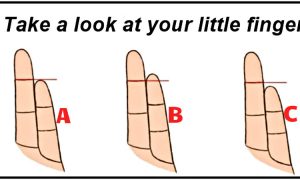Scientists have long established that moving more and exercising come with an untold number of health benefits, which include everything from lowering your risk of disease and early death to greater flexibility, burning more fat, and even enhancing your imagination and creativity. But if you’re living a sedentary lifestyle and sitting too much, there are several ways in which you’re putting your body in harm’s way in both the short and long run.

To learn exactly what happens to your body when you lead an inactive life, read on for the most notable side effects of sitting too much. And for more health advice you can use starting now, make sure you’re aware of the One Major Side Effect of Walking Every Day.
You’ll develop anxiety.
The research team, from Australia’s Deakin University’s Centre for Physical Activity and Nutrition Research (C-Pan), noted that 36% of high-school-age study subjects were likelier to experience the effects of anxiety if they had two hours of screen time or more per day. The researchers suggest that anxiety and sedentary behavior are linked because of poor sleep, “poor metabolic health,” and social isolation.
You’ll develop terrible posture and eventually back pain
Having poor posture may lead to aches and pains, but having it over the long term is when you get real damage,” chiropractor Andrew Bang, DC, explained to the Cleveland Clinic. “For every inch you tilt it forward, the amount of weight it places on your spine nearly doubles.”
According to UCLA Health, sitting for long periods is a one-way street to developing back pain, which is largely caused by more stress on your back, neck, arms, and legs. “It can add a tremendous amount of pressure to the back muscles and spinal disks. Additionally, sitting in a slouched position can overstretch the spinal ligaments and strain the spinal discs.”
As a result, the health experts advise you to move more, be more active, and stretch routinely, while making sure to sit close to your desk, make sure your backside is pushed back against your chair to ensure proper sitting, and, if you’re working, to keep your computer screen at eye level. “If your computer screen is higher or lower than your gaze, you need to either raise or lower it,” they instruct.
You’ll find yourself more easily distracted
You’ll have less brain power overall
You’ll put yourself at risk of blood clots
You’ll be shortening your life






















